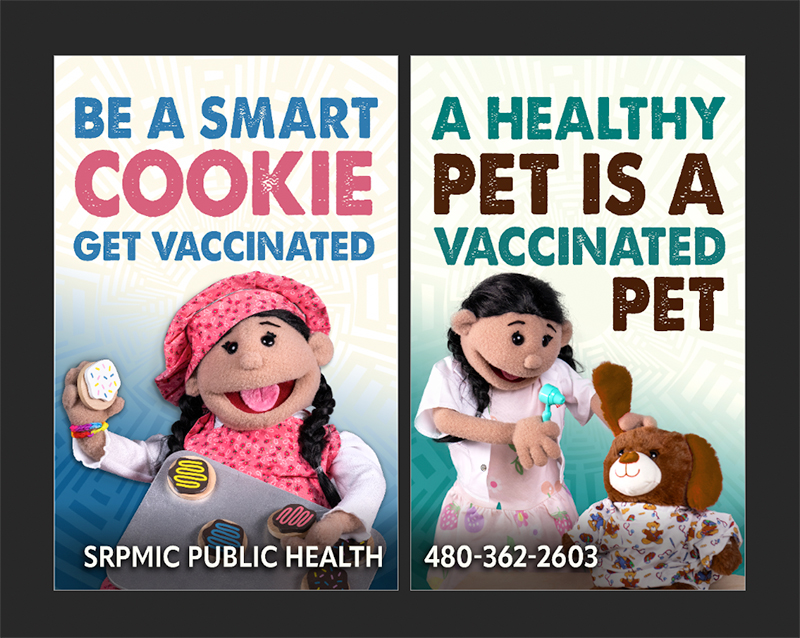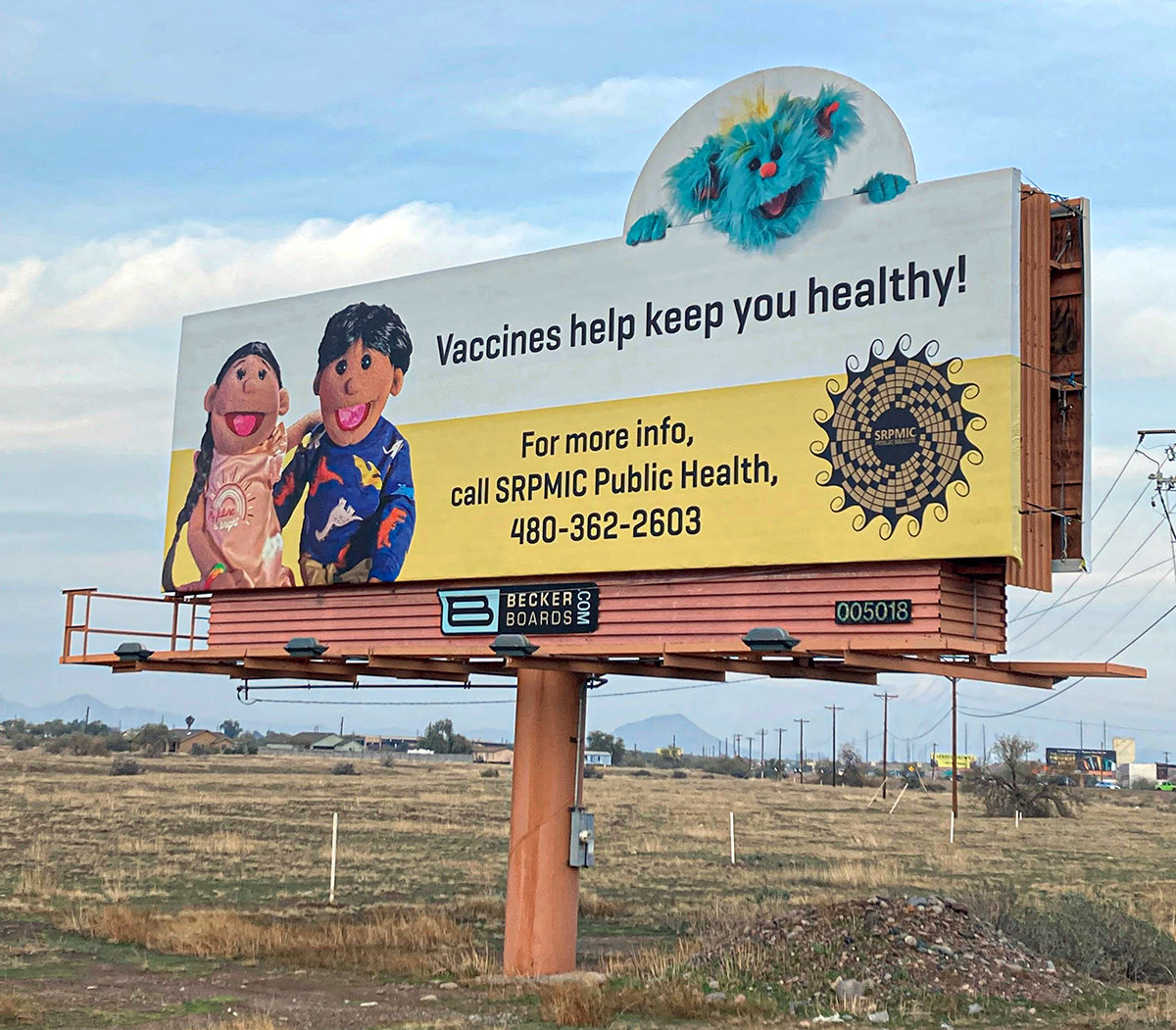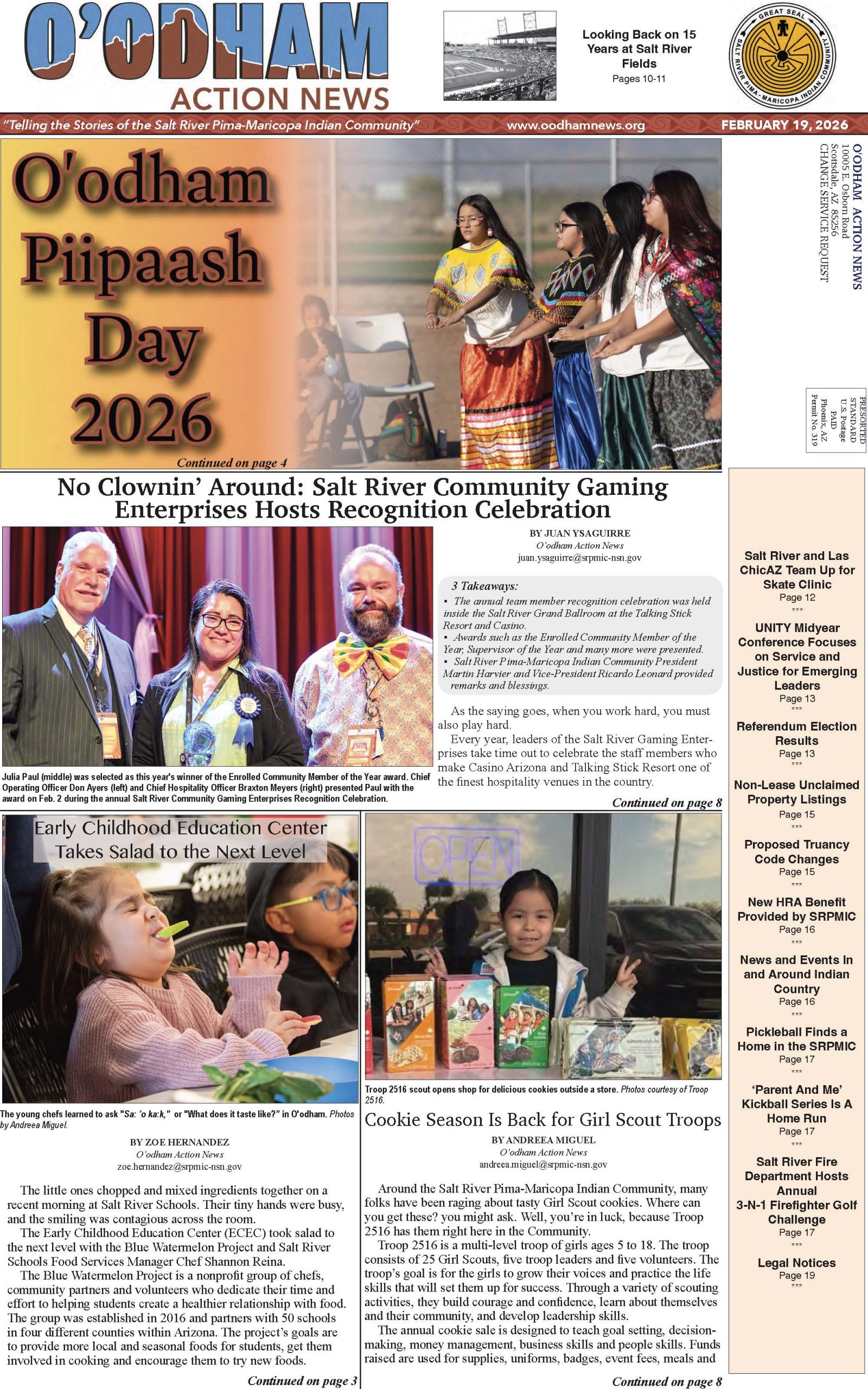VIEWS: 1183
May 7, 2025Prevent an Outbreak, Save a Life
A measles outbreak is hitting the United States.
For the safe-being of Salt River Pima-Maricopa Indian Community, Dr. Nancy Mangieri, from Health and Human Services, recommends everyone to get vaccinated for measles.
“The measles vaccine is essential for protecting individuals and communities from this serious disease,” said Mangieri. “It is safe, effective and plays a vital role in preventing measles outbreaks.”
As of late April, there were no confirmed measles cases in Arizona. However, the spread of measles in neighboring states is increasing—especially in Texas and New Mexico.
As of early April, the Centers for Disease Control and Prevention has reported 607 measles cases from 22 states.
While measles cases do appear every year, this outbreak is concerning because of the size and frequency of outbreaks in relation to the decline in vaccinations.
Vaccination
According to Dr. Mangieri, the MMR vaccine (measles, mumps, and rubella) will offer strong protection with two doses.
In addition to measles, there are five other vaccines every adult needs: Tdap, MMR, Chickenpox, Hepatitis A and B, Influenza and Pneumococcal.
In the past, the Community has been responsive to Covid-19 and Influenza vaccination efforts.
SRPMIC Public Health puppet friends River, Rainn and Blu have been central to spreading awareness to the importance of vaccinations.
However, many families struggle to find the time to get vaccinated, says Dr. Mangieri. Luckily, SRPMIC Public Health is a resource SRPMIC families can work with.
Measles Symptoms
Early symptoms include a high fever, cough, runny nose, and red eyes. Two to three days after the initial symptoms, kolpik spots, tiny white spots, will appear in the mouth. By three to five days of the symptoms, a measles rash of flat red spots will appear on the head, then spread to the rest of the body.
“Measles is caused by a virus found in the nose and throat of an infected child or adult,” said Mangieri. “When someone with measles coughs, sneezes, or talks, infectious droplets spray into the air, where others can breathe them in.”
If infected, measles can complicate to an ear or lung infection and even inflammation of the brain.
A lack of vaccinations in the Community will leave children, elders, immunocompromised people at risk.
Through a Community-wide effort, vaccines can prevent a potential outbreak. Limit the outbreak by vaccinating your family soon.
SRPMIC Public Health is a resource available for questions and information regarding vaccinations. Contact a health professional if you experience any symptoms of measles.
For uncertain Community members, Dr. Mangieri cleared some common vaccination misconceptions:
Myth: Vaccine-preventable diseases are just part of childhood. It is better to have the disease than become immune through vaccines.
Fact: Vaccine-preventable diseases have many serious complications that can be avoided through immunization. Vaccines stimulate the immune system to produce an immune response like natural infection, but they do not cause the disease or put the immunized person at risk of its potential complications.
Myth: I don’t need to vaccinate my child because all the other children around them are already immune.
Fact: Herd immunity occurs when a large portion of a community is immunized against a contagious disease, reducing the chance of an outbreak. Infants, pregnant women and immunocompromised people who cannot receive vaccines depend on this type of protection. However, if enough people rely on herd immunity as the method of preventing infection from vaccine-preventable diseases, herd immunity will soon disappear.
Myth: Since I already had COVID-19 and recovered, I do not need to be vaccinated.
Fact: There is not enough information available to determine how long immunity against the SARS-CoV-2 virus will last after recovering from the infection. Studies are ongoing to determine how long natural immunity lasts, however, there is some evidence that immunity may not last long. The Centers for Disease Control and Prevention (CDC) currently recommends that you receive a COVID-19 vaccine when you are eligible regardless of whether you already had COVID-19 disease.








